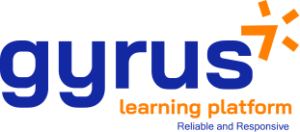Learning Management System Basics: Functions And Features eLearning Pros Must Know
The term "Learning Management System" (LMS) makes an appearance quite frequently in eLearning articles, tip sheets, and beginner’s guides. As such, it’s important to get a good grasp on what a Learning Management System entails and the benefits it brings. Is a Learning Management System really worth the resources? Or will a more traditional approach suffice? What are the advantages of investing in an LMS, and which features should you look for? Are there different hosting and pricing plans you should keep in mind? This article will address all these questions and give you the real insider scoop on Learning Management Systems so that you can decide whether a new LMS is right for your online training program or not.
What Is A Learning Management System?
The role of a Learning Management System varies depending on the organization’s objectives, online training strategy, and desired outcomes. However, the most common use for LMS software is to deploy and track online training initiatives. Typically, assets are uploaded to the Learning Management System, which makes them easily accessible for remote learners. In some cases, the LMS can even have built-in eLearning authoring tools that allow you to develop online training materials without additional third-party software.
Think of a Learning Management System as a vast repository where you can store and track information. Anyone with a login and password can access these online training resources whenever and wherever. For self-hosted Learning Management Systems, users must also have the learning management software installed on their hard drive or access to the company’s server. Whatever the installation option, the thing to bear in mind is that LMS users fall into two categories: First, online learners who use the Learning Management System to participate in online training courses; second, your eLearning team who relies on the LMS platform to disburse information and update the online training content.
What Are The Benefits Of Using LMS Platforms?
1. Organize And Safely Store Big Data
Learning Management Systems allow you to gather all Big Data in one location. This also makes it easier to maintain and update your learning materials. In addition, most LMSs offer advanced encryption so that you don’t have to worry about data falling into the wrong hands.
2. Monitor Learner Progress And Performance
Virtually all LMS platforms offer built-in reporting and analytics. Thus, you’re able to track various aspects of your online training program. If the Learning Management System lacks sufficient reporting capabilities, you can typically purchase add-ons or plug-ins to boost its functionality. You can track everything from learner engagement to eLearning assessment results. This means that you can identify patterns and trends, especially since plenty of LMSs provide data visualizations, such as graphs and charts.
3. Improve Resource Allocation
There are a number of ways that LMS software can help you allocate online training resources more effectively. First and foremost, you can identify aspects of your online training program that aren’t meeting expectations. Low learner engagement is usually an indicator that you should reevaluate an online training module or activity. Secondly, Learning Management Systems help your eLearning team update online training assets more rapidly. Then there’s the matter of deploying online training resources on a global scale. Thus, you have the power to keep corporate learners up to date using a single tool.
4. Personalize The Online Training Experience
You can assign different learning paths or online training resources for individual corporate learners with the help of an LMS. Therefore, everyone gets the individualized online training they require based on their learning goals, job duties, etc. There’s even the option to unlock the navigation so that corporate learners can choose their own online training activities and coursework. All this translates into more effective online training experiences and increased learner satisfaction. Not to mention, improved memory retention and engagement.
5. Improve eLearning Accessibility
Modern learners expect online training resources on demand. After all, we live in the digital age where information is always at our fingertips, thanks to smartphones and wearable tech. Learning Management Systems allow you to deploy and track online training courses without geographical limitations. So long as they can log into the system, corporate learners have the opportunity to expand their knowledge and hone skills.
Which Businesses Can Leverage LMS Systems?
Learning Management Systems are beneficial for educational institutions and corporations alike. Extended enterprise online training is yet another application for LMS platforms. For example, companies are able to deploy online training resources to external sales channels, franchisees, and even customers.
It’s vital to identify your organizational and training objectives before you start the LMS selection process, as LMS vendors typically cater to different consumer groups. Some specialize in eCommerce, while others are known for their sales online training features. For instance, the power to integrate CRM software.
Here are the customer types that can take advantage of LMS systems:
Large Enterprises
Larger organizations can use an extended enterprise LMS to track hundreds or thousands of employees. Not to mention, deploy global online training initiatives. In some cases, they even offer extended enterprise features so that you can keep franchisees and sales channels in the loop.
Small And Medium Businesses (SMBs)
Small and medium businesses can benefit from an LMS for SMBs as they can utilize fewer human resources. These tools also scale along with your business to adapt to your ever-changing training needs.
Freelancers
eLearning freelancers who work with multiple clients and must deliver a diverse range of deliverables can leverage these tools. An LMS for freelancers can offer built-in collaboration tools, which allow you to fly solo or work with a remote eLearning team. Besides, you might find affordable price plans for this type of system.
Learning Management System Deployment Options
Cloud-Based (SaaS)
LMS software hosted on the cloud. The LMS vendor and their administrators will see to the maintenance of the system and carry out any tech upgrades or updates. Online learners and collaborators login to the Learning Management System with a user name and password. There’s no need to install any software, which makes it a great option for businesses that want to get started as soon as possible. The best online learning platforms also offer various tools and options that can help you. The downside is that some cloud-based Learning Management Systems cannot be customized. For example, there are fewer opportunities to incorporate branding or personalize the dashboard.
Self-Hosted
LMSs that require software downloads. The LMS vendor can either offer direct downloads from their site or you must request physical software discs. However, the former is more common these days. Self-hosted LMS platforms allow for greater creative control and customization. The disadvantages are that you usually have to pay for updates and the system may require IT know-how.
Desktop Application
The LMS app is installed on the desktop. Some desktop apps are even accessible on multiple devices, making it easy for your entire eLearning team to collaborate.
Mobile Application
Learning Management Systems that are accessible whenever, wherever via mobile devices. You can upload online training content so that online learners can track online training initiatives on the go.
Licensing Options For Learning Management Systems
Open Source
Open-source Learning Management Systems are generally free and based online. You’re able to modify the source code in order to suit your needs. In addition, multiple open-source options have active online communities, which means that you will be able to get tips and troubleshooting assistance if you do encounter a problem. The drawback is that you typically need some degree of programming experience.
Free License
There are a number of free LMS options, usually open-source systems. However, the money that you save on licensing or monthly fees may be spent on IT staff, especially if you don’t have any programming experience. In addition, you may have to deal with a steep learning curve to get the most from a Learning Management System.
Paid License
Paid Licence Learning Management Systems require a monthly or yearly fee. Some even allow you to purchase the software outright. They typically offer more advanced support options and user-friendly features.
Pricing Models For Learning Management Systems
Licensing
Instead of paying per user, this LMS pricing plan involves a licensing fee. Typically, an annual fee that you must renew on a yearly basis, or an outright upfront fee that grants unlimited lifetime access. However, as technology advances, you’ll probably still have to purchase replacement software in the near future.
Subscription
An LMS subscription fee usually grants you access to all LMS features or relies on a pay-per-user model. This pricing model involves a fee for each user, or active user. In some cases, the LMS vendor offers different price brackets. For example, the fee covers up to 25 active learners. This is a great solution for smaller organizations who try to minimize online training software costs, but still want to be able to scale the Learning Management System as their company expands.
Freemium
This software option is free for basic LMS features but a fee is charged for more advanced functionalities, such as add-ons or upgrades. Because of this, it is hard to include them when doing an LMS price comparison.
Perpetual License
If the software offers a perpetual license, you will only need to pay for it when you buy it. This saves you the cost of fees and subscriptions.
LMS Specification Support Types
SCORM 2004
This set of standards helps eLearning authoring tools and eLearning content communicate with the Learning Management System. SCORM 2004 enables tools to format eLearning content in such a way that is shareable across the board.
Tin Can API
Also known as Experience API, Tin Can spec support is often viewed as the follow-up to SCORM. It allows for external learning activities and tracking, and allows eLearning pros to develop and deploy native mobile apps.
AICC
Aviation Industry CBT Committee support allows the LMS and eLearning content to communicate via HAC protocols. In essence, the system relies on an HTML form to transmit the information, then the LMS relays the information back via text.
IMS LTI
Learning Tools Interoperability (LTI) was introduced by the IMS Global Learning Consortium. It specializes in apps that are hosted remotely, as well as web-based eLearning content.
Top Features To Look For In Learning Management Systems
1. Reports And Analytics
You must be able to monitor your online training initiatives to determine if they are on target or require minor adjustments. The same rule also applies to individual learner performance. Are corporate learners engaging with online training content? Is it giving them all the information they require to achieve their learning objectives? These are questions that can be answered with a robust reporting system built into your new LMS. Learning Management Systems also offer analytics that allow you to monitor online training on individual and group level. For example, determine whether a certain percentage of your audience has completed the online training course requirements or not, or how long they take to complete each online training activity on average. Most will even deliver the analytics right to your inbox via automated email reports.
2. Responsive Design
Some of the top Learning Management Systems have a responsive design. Multiplatform-friendly online training resources give everyone the chance to benefit from your online training course. Even those who prefer to use their smartphones or tablets to access the learning materials. Thus, your LMS should be responsive, enabling you to create a master layout that features distinct breakpoints. The Learning Management System automatically displays the most suitable version based on the user’s device. For example, shrinks images down to size so that they don’t occupy the entire smartphone screen. Ideally, you should be able to preview each version and apply the necessary modifications before launch. It’s also wise to look for a tool that allows corporate learners to download the learning material and view them offline. Especially when internet accessibility isn’t an option.
3. Intuitive User Interface
Feature-rich systems aren’t of much use if your eLearning team is unable to use the user interface and navigate the LMS platform. The same goes for your corporate learners. Does the tool make it easy for them to access the coursework, or does it present its own set of challenges? The LMS you choose should have an intuitive user interface that aligns with your eLearning team’s skillsets and abilities. For this reason, it’s essential to get their input before deciding on a platform. In addition, you should take advantage of LMS free trials and demos to ensure it’s user-friendly.
4. Support Services
LMS vendors offer different support services. As such, you should determine the level of assistance you require based on your eLearning team’s experience level and the complexity of the tool. For example, novice eLearning teams might require more extensive support in order to utilize the system effectively. Many LMS vendors also host online discussions that allow you to connect with other users, in addition to online training tutorials, guides, and tip sheets. You may be able to pay for additional support services if you require more advanced options, such as a toll-free number that gives you direct access to a trained tech.
5. eLearning Assessment Tools
You should assess your corporate learners periodically to identify gaps and intervene when necessary. Therefore, the LMS must be able to support a broad range of eLearning assessment methods. Many even offer built-in eLearning assessment tools, such as eLearning templates. Lastly, there must be LMS reports dedicated to eLearning assessment tracking.
6. Gamification Features
Some employees require extra incentives to actively engage in your online training course. Game mechanics give them the motivation they require in the form of badges, points, and leaderboards. The key is finding an LMS that has built-in gamification features so that you can easily incorporate these rewards.
7. Compliance And Certification Support
This is an essential feature for businesses that provide company policy and compliance online training, as well as those that require more advanced certification features, including the tracking of individual skill and performance gaps. You can also refer to the LMS records in the event of an audit, which helps prevent violations and fines.
8. Social Learning Support
Social learning gives corporate learners the chance to interact with peers and share their experiences. Many Learning Management Systems now feature integrated social media tools. For example, tracking online discussion participation, or incorporating a news feed into your eLearning course design.
9. Localization
Multilingual support is crucial for businesses that plan to deliver worldwide online training resources. Every member of your team should have the same opportunity to develop their professional skills. Some LMSs even feature geolocation features that automatically display the appropriate version of the online training course.
These are just the basic LMS components and considerations. Keep in mind that there is no one-size-fits-all LMS. Every organization has unique training needs and budgetary constraints. Thus, you should do your homework to find the LMS that meets your requirements and benefits both your corporate learners and bottom line.
Are you interested in learning more about LMS pricing plans? Read the article "The Insider's Guide To Learning Management Systems' Pricing Models" to explore the most common Learning Management System pricing models to consider, from perpetual licensing to pay-per-use. This way you can determine which option is best for your budget and training needs.
Also, don’t forget to check out our free LMS directory, which allows you to filter your search results based on deployment, customer type, licensing, and pricing models.
Utilizing The Best LMS Tools For Specific Use Case Scenarios
Implementing an LMS to enhance your training needs is vital for any organization. The same goes for educational institutions that need to start eLearning training or like to use it to complement classroom learning.
In the time we live in, every aspect of our communication has been taken over by technology. As the years advance, your L&D department will realize that you require a training solution. Such a solution not only will help organize your programs but will also assist in keeping your learners’ engagement high. Keeping track and reporting each stakeholder’s development is equally crucial.
An LMS can help accomplish your training needs, so the best thing you can do is to make the best LMS purchase to fit or even exceed your expectations. If you are working for a large enterprise or an SMB, one thing is certain: an LMS can be a great tool to boost your business growth.
Employee Training
Employee training done right is a burden for plenty of L&D managers and HR managers. As a manager, you should have clear objectives and take into consideration several factors that will help define if you require an LMS or not. What’s more, a corporation might invest a strong cash flow in training new hires or in developing existing workforce skills, but if your LMS solution is not ideal for your needs, the result might not be that satisfying. Don’t worry about that, though. I’m going to analyze this thoroughly in the following lines. Delivering employee training and development by using an LMS will make your training process fast and easy.
Employee training and development can bring immense advantages to your corporation. By enabling your employees to take on new responsibilities and tasks, you can keep employee engagement high. If your LMS has gamification features, things can become even more exciting. By maintaining your employees engaged, you increase their willingness to learn more and expand their skills. In the long run, this will lead to higher retention rates. It will also help talented staff get promotions as you cultivate leaders and experts within your teams.
An LMS can help your employees learn new skills and gain problem-solving abilities. An LMS can also boost the creativity and innovation of your workforce. It can help you create immersive learning experiences that will leave your learners in awe. A great way to accomplish this is by designing eLearning courses based on AR/VR or even creating AI training.
Compliance Training And Onboarding
Compliance training is essential in the fast-paced, modern workspace. Most corporations expect their employees to be able to adapt to their work environment rapidly. What happens though when someone is a new hire or when things change within your procedures, services, or products? Information technology might play a vital role in these changes, especially now that we have the chance to use limitless information.
By using an LMS, you can help your staff feel more empowered. Taking up courses on compliance training can also increase their confidence, especially in regard to onboarding and safety training. When an employee gets responsibility for new tasks, you allow them to deliver better results.
How Implementing Compliance Training Can Add To Your Business Growth
Onboarding and compliance training will undoubtedly help your staff learn from past mistakes. Developing critical thinking skills is a great way to improve things. Your team will be able to resolve issues that occur with flexibility. When employees and training managers both have a knowledge-sharing mentality, you’ll notice an improvement in your organization’s internal procedures.
Your training program will offer insight into each employee’s role within your organization. Such a strategy will also create an environment that has a constant learning and evolving base. All these add up to creating a safer working status by minimizing the risk of having employees who stay behind in regard to business growth and transformation.
When opting for an LMS to implement compliance training, you’ll require robust reporting and assessment features.
Sales Training And Employee Skills Development
Most companies need to boost their revenue. Upping your sales game by using an LMS for sales training is the key to this. If you are looking to train your sales reps for success, there is no better way.
If you’re starting your sales training efforts or if you are trying to improve your current sales training techniques, an LMS is a great tool. Such an LMS solution can help design and implement courses that will bring results. By choosing the right LMS tool for sales training, you can set up a sales training program pretty quickly. Make sure that you have a goal-oriented mindset from the very beginning.
Developing your employees' skills is key to boosting their career goals as well as your revenue. Define if you like to focus more on your employees' skills training or their leadership development.
What Are Some Must-Have Features Of A Top-Notch Sales Training LMS?
- Collaborative learning
- Mobile-friendly learner portal
- Multiple tenants support
- Branding customization
- Multiple media support
- Assessments and enhanced reporting
- eCommerce integrations
- Flexibility regarding licensing management
- Gamification (badges and leaderboards)
An effective sales training program should focus on finding the right method to communicate your value proposition to your buyers. Either you offer a product or service, your organization will strive to improve its revenue if your sales team doesn’t follow an aligned strategy. Feedback from your current sales force will help create scenarios around specific issues to avoid future frustration. Sure, on-the-job training is critical, but some businesses beg to differ. You might choose to do the same if you are keen on getting the results you need.
By using an LMS for sales training, you can:
- Welcome recruits by hosting onboarding programs
- Create seminars on product knowledge
- Focus on customer interaction training
- Design case-study based learning from previous interactions with clients
Customer Training
A customer training LMS is not just an eLearning solution. Companies that focus on customer satisfaction should consider making such an upgrade. To accomplish that, your LMS should include certain features. Α customer-oriented LMS can help your customers' online training process. Most importantly, it can keep increasing customer engagement.
Concerning customer education, you will require a strategic partner. Selecting the technology that meets your expectations will get you up and running. Your training team will have an eLearning tool dedicated to assisting in the creation of great customer experiences. They will be able to define a strategy that suits your needs.
From developing coursework to scheduling and delivering effective programs, customer training LMS can be your ideal solution. Your board of ideas will have no limit if you create the right customer training strategy by choosing the most suitable LMS.
Of course, the steps you follow will define your customer training success. You should design a strategy and build an all-star team to implement these ideas. Emphasize your efforts when developing your training content.
What you need is to resonate with your target audience and bring value to the table. Success is not easy; this is why you should measure and evaluate your efforts. All of the above might fail if you don't choose the right technology.
What Makes A Top-Class Customer Training LMS?
When looking to create successful customer training programs, your LMS needs to be able to provide at least some of the following:
- Friendly and easy to use interface
- Mobile learning compatibility
- Social learning capabilities
- SCORM and Tin Can API compliance
- Gamification elements for customer motivation and engagement
- LMS integrations with the tools you already use (e.g., CMS solutions, GSuite, eCommerce, Hubspot, Magento, etc.)
- Multi-tenancy support
- Localization/Multilanguage support
Extended Enterprise
Since many large organizations are dealing with multiple dealers and suppliers, there is a need for training through all sales channels. The same goes for your customer service department.
Whether your niche is into retail or information technology, being able to deliver employee training all around the world is vital. Professional training and coaching on a world-wide level require specific features to work.
An extended enterprise LMS is handy, especially in sales training. Implementing such an LMS can assist in keeping an aligned strategy throughout your sales force. No matter where your sales reps live.
With an extended enterprise LMS, you can train your employees on video-based scenarios to reduce customer complaints. In this way, your customer satisfaction will improve, as will your sales return. If your training needs analysis has shown that you should improve product knowledge, an LMS is your solution.
Manufacturing and automotive, for example, are some other use cases where LMS implementation can bring training to another level.
What Are The Top Features Of An Extended Enterprise LMS?
- Must have an intuitive User Interface (UI)
- Should be mobile friendly
- Customization and personalization capabilities are necessary
- Should include good reporting and analytics tools
- Must have localization support
Educational/Academic Training
The style of training you require is what defines the kind of LMS you should choose. Here is the first dilemma: corporate LMS or academic LMS? What’s best for your training needs? By making the ideal decision, you’ll avoid facing problems in the long run. The best thing you can do is pick an LMS solution for education that keeps everyone happy. Students, teachers, and all academic professionals involved can gain a lot from it. There are several details you should consider.
Those of you who are in the educational field might have noticed that it can be challenging to use an LMS for blended learning. I assure you, it doesn't have to be this way. Blended learning might have a better application if you do it the easy way.
An LMS can be used to create personalized learning and social learning experiences for your students. As the world progresses its digital transformation every day, modern educators must find smart ways to apply it to their courses. That said, you can use an LMS to reduce stress when teaching. You can keep information about your students and your courses in one place. Also, you can file student grades and assignments without worrying where you’ve hidden that last-day submission.
Furthermore, you’ll come out as more accessible to your students. What an LMS does best is giving immediate access and channels of communication to all stakeholders involved. Even if you can’t afford an a-class LMS, there are plenty of open-source LMS options out there.
The Importance Of LMS Integrations
When choosing your ideal LMS solution, the ability it has to integrate with other software is crucial for your decision. Having several integrations can multiply your LMS's power as well as its utility. Integrations will help your L&D team become even more valuable and become more efficient.
LMS integrations bring along several benefits. When your learners are already familiar with some software, having the option to integrate will increase user engagement. What’s more, it can help deliver a better User Experience by saving time and reducing manual tasks.
For an LMS to enhance your training effectiveness, you might require a media library and eCommerce. Whether you’re working in human resources or are in the L&D of a telecommunications company, you must combine tools that are already in your training arsenal.
Tips On How To Select The Best LMS For Your Business
When you think about it, is there an industry that doesn’t require an LMS? Depending on your industry’s needs and expectations, you should opt for the ideal LMS that meets your business needs.
If you need to train your extended enterprise, you’ll have to focus on localization features. A key element for an extended enterprise LMS is that it offers online training anytime, anywhere. Maybe a cloud-based LMS would be the best solution for this case. Or definitely, an LMS that has a proper mobile application.
What if your company is in the hospitality industry? You'll surely require an LMS that is good for employee onboarding and compliance training. The reason for this is simple: you’ll have plenty of seasonal employees that you must train.
Successful LMS Implementation For Different Industries
eLearning training strategies can have a successful implementation in the banking sector, as well. Plenty of financial services do use an LMS to create courses for their employee training. To meet your training needs in this industry, you'll require an LMS ideal for compliance training. Sales training and soft skills training are also essential. You may also use your LMS to give certificates to your trainers. Your employees will enjoy getting certifications of completion. In case your LMS has a competitive edge by including gamification features, even better.
Retail, of course, is no different. Such companies require extensive customer training capabilities. They are also looking for an LMS that is powerful and flexible when it comes to sales training. Keeping your sales force constantly training will enhance the way they interact with your customers. With such an LMS, you can train new hires in no time. The above is equally important to those looking for training solutions in the food & beverage industry.
A cloud-based LMS could be the solution you need. Being mobile-friendly and cost-effective makes it a good option. Extended enterprises could benefit from an all-in-one LMS that offers mobility. Simulation-based training and the use of customer scenarios can also increase your revenue in the long run.
Which LMS Is The Best For Your Needs?
Of course, before you choose an LMS you should test it by yourself. So, I suggest that you ask for an LMS free trial to get your hands on it. If an LMS vendor doesn’t offer a free trial period, then at least ask for a demo. Do a training needs analysis before selecting which LMS vendors you’d like to put to the test. This will put you in a position to make your own Learning Management System comparison.
Getting an LMS doesn’t mean you have to spend a fortune. You can find value for money LMS choices for SMBs as well. Selecting the best eLearning tool for your business depends highly on who is going to use it.
Evaluate at least 3-5 LMS tools before concluding. Take a look at the user setup, create a mock-up training course and extract reports. Make sure to choose an intuitive and user-friendly LMS. Always have in mind that you should find an LMS that meets your specific business needs and objectives.
In conclusion, when selecting an LMS, you should follow these vital steps:
- Define your objectives
- Do a training needs analysis
- Ask all stakeholders involved how they like to learn
- Does this LMS have the essential features you need?
- Can the LMS of your choice meet your future needs?
Do you have an LMS solution in mind yet? Our list of the top Learning Management Systems can help you. You can also use it for an LMS pricing comparison of various LMS providers. What's more, our LMS consultants have made the decision-making process easier, even for novice users. Hence, you can find an LMS based on your criteria!
Are you looking for a Learning Management System review about the product you are thinking of buying? Read the latest LMS reviews from our users.










